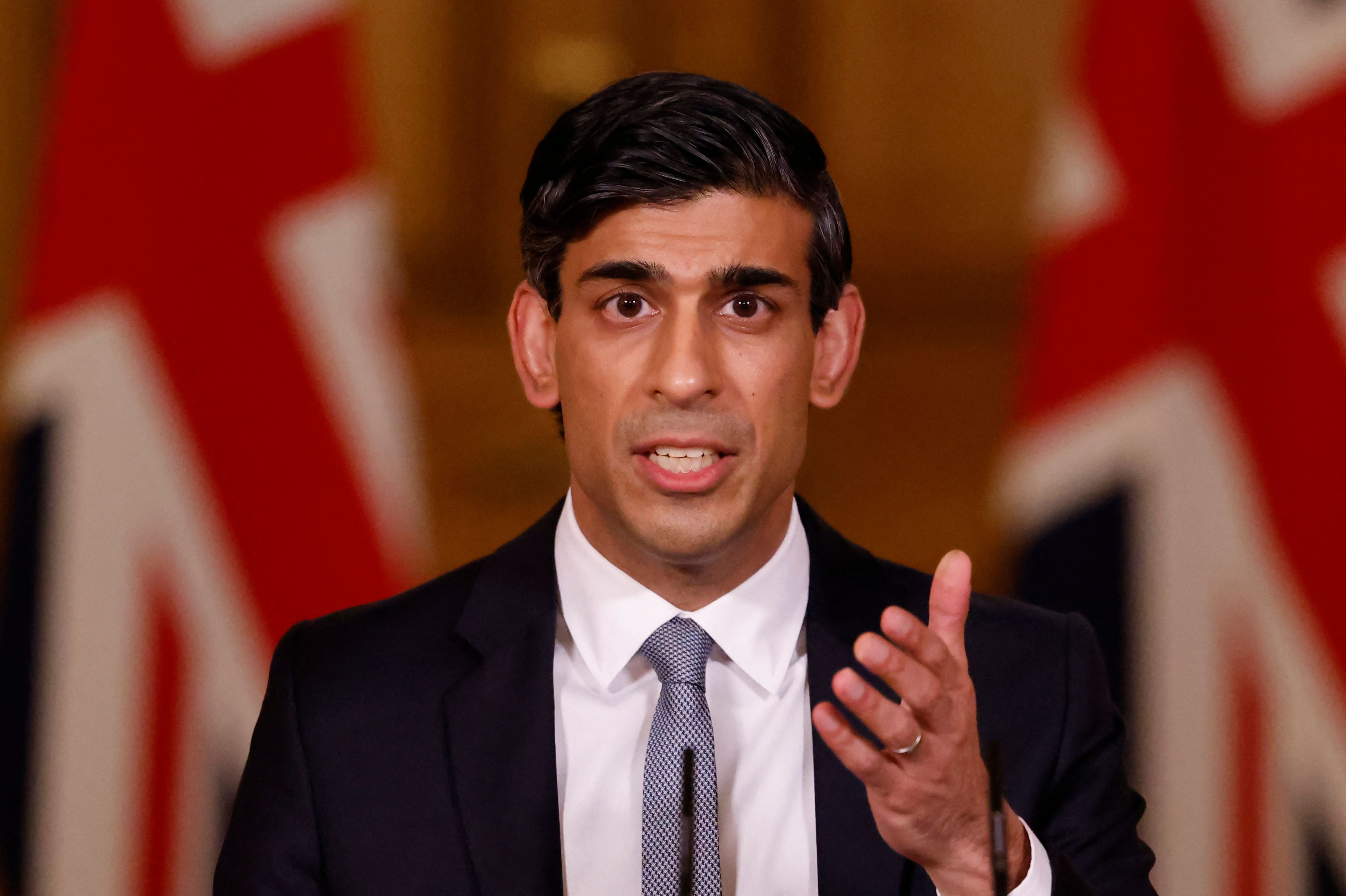Rishi Sunak admits he argued against September lockdown aimed at stopping second wave
Chancellor says it was his job to think of economy

Your support helps us to tell the story
From reproductive rights to climate change to Big Tech, The Independent is on the ground when the story is developing. Whether it's investigating the financials of Elon Musk's pro-Trump PAC or producing our latest documentary, 'The A Word', which shines a light on the American women fighting for reproductive rights, we know how important it is to parse out the facts from the messaging.
At such a critical moment in US history, we need reporters on the ground. Your donation allows us to keep sending journalists to speak to both sides of the story.
The Independent is trusted by Americans across the entire political spectrum. And unlike many other quality news outlets, we choose not to lock Americans out of our reporting and analysis with paywalls. We believe quality journalism should be available to everyone, paid for by those who can afford it.
Your support makes all the difference.Rishi Sunak has admitted he argued against a circuit-breaker lockdown in September that scientists said was necessary to head off a second wave.
The chancellor suggested it was his job to think about the country's finances in isolation and that another lockdown would have been "bad for the economy".
But he said the choice to ignore the Scientific Advisory Group for Emergencies (Sage)'s recommendation was ultimately the prime minister's.
Boris Johnson was ultimately forced to called another lockdown at the end of October as cases continued to rise, with restrictions remaining throughout most of the winter as deaths and cases soared to previously unseen heights.
"Just remember what my job is. Everyone's job in the cabinet is to provide the prime minister with the best advice that they can in their area of expertise," Mr Sunak told ITV's Peston programme.
Read more:
"In the same way that you'd expect the education secretary to feed in about this on the impact on children's education and learning.
"And you'd expect me in my job to talk about the impact on people's jobs and livelihoods and ultimately things that are bad for the economy are bad for our long term health as well and our ability to fund things like the NHS.
"And those things have to go into the decision. These are difficult decisions to make, and it's why we weigh up all those factors. And at the time it wasn't a clear-cut case.
Asked whether his role in the decision not to lock down was "decisive", he said: "No. I think all of these decisions, ultimately are ones that the Prime Minister makes."
Critics say the decision to delay the lockdown meant it would have to be even longer when it inevitably came, because of the exponential growth of the virus. This would have done even more economic damage than locking down early, it is argued.
The UK has suffered around 150,000 coronavirus deaths, with the second wave over winter significantly more deadly than the first.
Britain has suffered one of the worst death tolls and economic his of any country in the world from the virus.
Labour’s shadow chancellor Anneliese Dodds said: “This is an astonishing confession by the Chancellor. We have it in black and white: he rejected scientific advice on the need for a circuit breaker to control the virus and save lives - and he’s trying to pin the blame on the Prime Minister.
“From failing to support self-isolation and provide decent sick pay, to ordering workers back to the office early and forcing a delay to the autumn lockdown, the Chancellor has called this crisis wrong at every turn. That’s one reason why we have the worst economic crisis of any major economy.”
Join our commenting forum
Join thought-provoking conversations, follow other Independent readers and see their replies
Comments